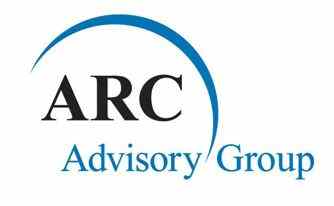

A quick keyword search on transparency in sustainability will demonstrate the importance of having one, transparency, as a key component of the other, sustainability. The same can be said for trust, though the word often associated with trust in  sustainability circles is “accountability.” In industrial sectors, such as manufacturing, utilities, and oil and gas, the pathway toward accountability is rather straightforward, though it certainly has not yet been solved. True, massive complexities (and money) are involved, improvement must be done iteratively, and substantial transformation is an end result, Sustainability transparency and trust are a must for those industrial sectors; they need to become “table stakes” as the phrase often goes. Only by pushing toward increasing levels of openness and accountability will the efforts, results, and progress of industrial organizations be trusted by others. to help move the needle when it comes improvement in environmental, social, and governance (ESG) performance.
sustainability circles is “accountability.” In industrial sectors, such as manufacturing, utilities, and oil and gas, the pathway toward accountability is rather straightforward, though it certainly has not yet been solved. True, massive complexities (and money) are involved, improvement must be done iteratively, and substantial transformation is an end result, Sustainability transparency and trust are a must for those industrial sectors; they need to become “table stakes” as the phrase often goes. Only by pushing toward increasing levels of openness and accountability will the efforts, results, and progress of industrial organizations be trusted by others. to help move the needle when it comes improvement in environmental, social, and governance (ESG) performance.
Regardless of individual progress, every industrial company is on the front end of implementing a more modern version of sustainability. And so, it stands to reason that their current state, relative to ESG metrics for example, will change over the course of years. The companies that succeed will, in fact, iterate through a complex journey of improvement. With that reality in mind, the ideas of transparency and trust will also evolve.
A current example is friction stemming from greenwashing (and greenhushing). Efforts by companies to oversell or obfuscate sustainability performance have directly led to more stringent legislation and policy. A good example is the 2022 implementation by the European Union (EU) of the Corporate Sustainability Due Diligence (CSDD) rules. The EU clearly didn’t trust that businesses would or could effectively govern themselves to improved sustainability performance. The effect on transparency of these rules is significant, as they will require massive improvement in data, reporting, and compliance transparency. As these companies implement the skills, change processes, and deploy technology to meet rules, such as CSDD, they will naturally pass thresholds of improved sustainability performance. As a result, they will then be trusted that they can meet these goals and will move to make further improvement.
Organizations can shed mantles of greenwashing by getting specific about their efforts. In doing so, these companies put a needed stake in the ground as to what they are going to improve, how, when, and to what end. Success, even if achieved through iterative improvement, can then be demonstrated objectively.
Like digital transformation, sustainability improvement doesn’t occur in a bubble. That’s also true of the transparency and trust that go along with it. On one level, these companies will need to build trust via transparency in those they report out and impact, such as financial stakeholders and communities. On a second level, they will need to ensure trust and transparency in execution of efforts, particularly with those entities that help them carry out their sustainability efforts.
This second layer is not as straightforward as it may seem. It requires the development of transparency and trust between the industrial company engaged in sustainability initiatives and those partners helping them execute these projects. That requires accountability across the process chain. Often, stricter management of partners is required, and many of these industrial companies are not yet ready to do so based on a range of skill, data, technology, and process issues. Similar to the changing ecosystem requirements brought about by digital transformation, industrial companies will need to implement tight oversight as well as proof of execution and results, particularly in initial projects.
Getting the second layer of transparency and trust right is critical. Missing the mark in these initial, iterative sustainability projects heightens distrust and cements perspectives that industrial companies are only interested in efforts that can be characterized as greenwashing. In turn, a lack of provable performance by industrial companies will lead to tighter regulations, laws, and penalties. Collaborative efforts to improve sustainability and meet ESG goals will be seen as less viable or worthwhile.
A recent example demonstrates the need for tighter oversight, increased transparency, and trust through accountability. In this case, the wrong partner was involved and there was no process in place for ensuring that the outcome of the project matched its intention. The government of Singapore and Dow Chemical undertook an effort to recycle running shoes into playground and running tracks. An excellent idea to extend a product’s (rubber on the soles of running shoe) into a quantifiable ESG benefit. Unfortunately, a waste management partner in the project subcontracted collection to Yok Impex, a second-hand goods recycler. Instead of recycling the shoes as intended, many appear to have made their way into the resale markets, furthering their carbon footprint, no pun intended.
Now all aspects of the project can be questioned, regardless if the parts of it were carried out correctly. With tighter management of the process, as well as verification of results, transparency and trust could have been established. Instead, the government of Singapore is implementing unannounced inspection as part of the project process and tighter custom checks at small ports. Yok Impex was removed from the project and textile and footwear companies are banned from participation. Rightly so. Transparency will need to improve and trust will have to be built and rebuilt.

